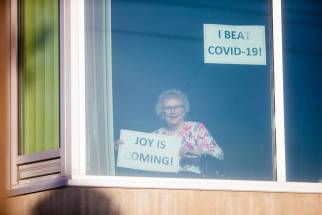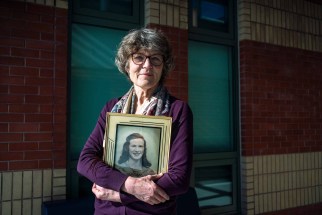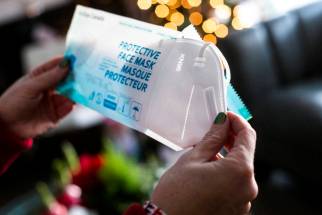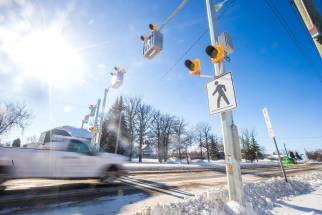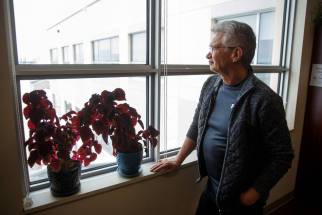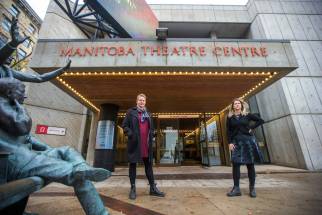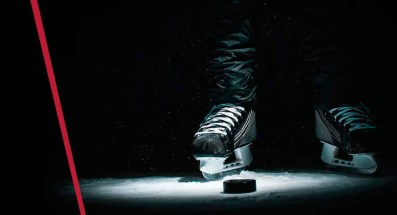Two traumatic years later On the second anniversary of COVID-19’s arrival in Manitoba, some of the first people to test positive in the province reflect on their experiences with the virus, their recoveries and what their futures look like
Read this article for free:
or
Already have an account? Log in here »
To continue reading, please subscribe:
Monthly Digital Subscription
$0 for the first 4 weeks*
- Enjoy unlimited reading on winnipegfreepress.com
- Read the E-Edition, our digital replica newspaper
- Access News Break, our award-winning app
- Play interactive puzzles
*No charge for 4 weeks then price increases to the regular rate of $19.00 plus GST every four weeks. Offer available to new and qualified returning subscribers only. Cancel any time.
Monthly Digital Subscription
$4.75/week*
- Enjoy unlimited reading on winnipegfreepress.com
- Read the E-Edition, our digital replica newspaper
- Access News Break, our award-winning app
- Play interactive puzzles
*Billed as $19 plus GST every four weeks. Cancel any time.
To continue reading, please subscribe:
Add Free Press access to your Brandon Sun subscription for only an additional
$1 for the first 4 weeks*
*Your next subscription payment will increase by $1.00 and you will be charged $16.99 plus GST for four weeks. After four weeks, your payment will increase to $23.99 plus GST every four weeks.
Read unlimited articles for free today:
or
Already have an account? Log in here »
Hey there, time traveller!
This article was published 11/03/2022 (1374 days ago), so information in it may no longer be current.
Al Bradbury was celebrating his retirement from the Winnipeg Police Service with his wife and two friends on what was to be a spectacular trans-Atlantic cruise from the Caribbean to the Mediterranean Sea two years ago.
Although they had seen the news reports beginning to filter out of China and parts of Europe about a virus making people very sick and raising concerns among international health-care experts, the cruise line reassured them no one on the ship had been to any of those hot spots recently.
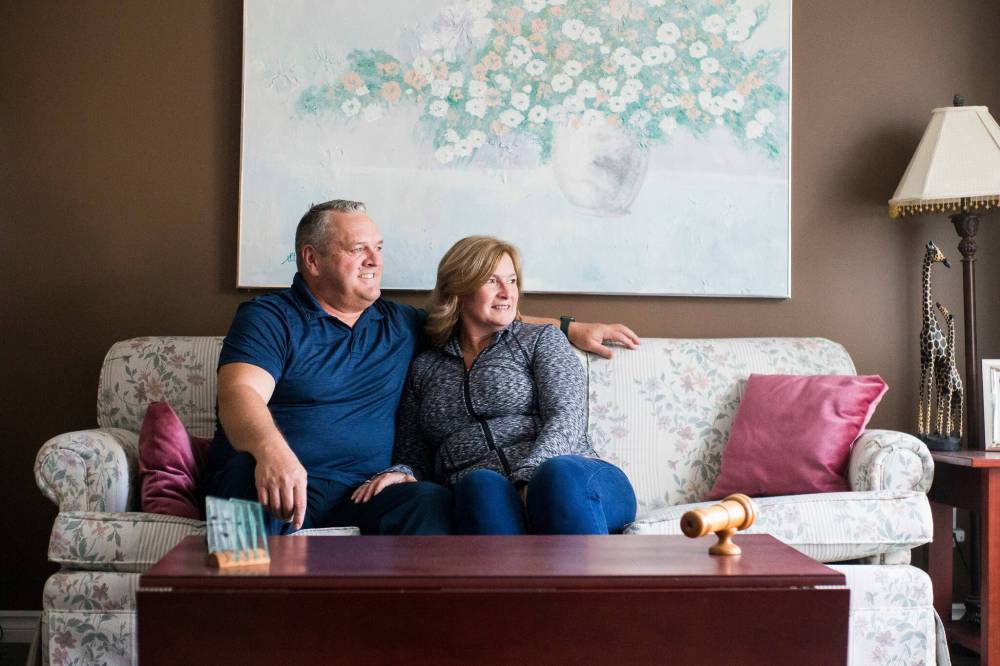
That wasn’t true, as it turns out. Some passengers had been in northern Italy, where doctors and nurses were fighting an outbreak of COVID-19. It wasn’t long before it started to spread among passengers and crew on the ship. The Bradburys and their friends got off in Marseille, France, where they were put on a flight back to North America, surrounded by people who’d fallen ill.
Not surprisingly, all four got sick to varying degrees. They recovered, but the virus left its mark.
“We call it the cruise of a lifetime,” says Bradbury, 57. “We say that because we don’t want to relive that one.”
•••
The first case of COVID-19 was confirmed in Manitoba two years ago, March 12. More than 132,000 people in the province have tested positive since then and, as of Friday, the virus had killed 1,710 of them.
The past 24 months have been, in many ways, a blur. Daily government news briefings, public-health restrictions, business shutdowns, mask mandates, chaos and tragedy at personal-care homes. Fear, confusion, anger and, most of all, uncertainty.
There was unimaginable sorrow for people unable to say goodbye and hold the hands of loved ones who were slipping away in hospital wards closed to visitors.
But there was also a sense of overwhelming gratitude — for a while, at least — for the heroic work done by doctors, nurses and support staff in the strained health-care system, along with a litany of essential workers, including the people who made sure grocery stores, pharmacies and many other vital businesses continued to operate.
And, of course, the incredible exhilaration and feelings of hope and relief experienced by the majority of Manitobans who endured the long waits and technical frustrations involved in getting vaccinated. Then a second time. And a third.
For many of the people who’ve tested positive, COVID has been much ado about little more than a head cold. For others, however, some aspects of life may never be the same.
•••
When Bradbury, his wife Martha, and their two friends contracted COVID-19 in March 2020, there were only 44 positive cases of the virus in the province.
“We represented 10 per cent of the province’s cases at that time,” Bradbury says.
The Bradburys isolated at home when they made it back from France. That was before the province and federal government mandated quarantine periods for travellers and people who had tested positive.
“We quarantined for 26 days,” he says. “I was sick and my wife took care of me and she got sick when I could look after her. It took eight days to get my results and by then I was half-decent and getting better, but my wife was getting sick.
“It was scary because at that point you thought you got COVID and you were going to die. We didn’t know then (that) many people lived.”
Two years later, he still has the battle scars.
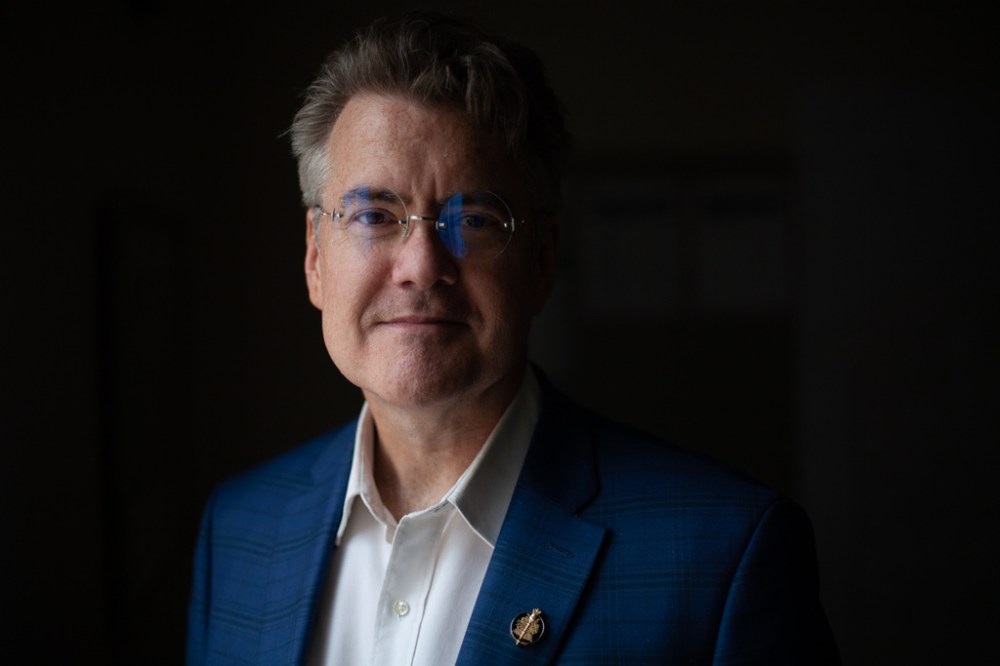
“I have some (ability to) taste, but very, very limited smell,” he says.
“Nothing smells like it did. I’m trying to distinguish what these new smells are. When I smell wood burning it doesn’t smell like it used to be. It is a pleasant smell, but not in the spectrum of the normal smells I had before.
“My smell might come back, but I don’t think it will. It’s maybe two per cent of the people who suffered with (COVID) who have this,” he says.
“I burned stuff on the stove, but I couldn’t smell it (and) I was working in the garage and my wife came in and said, ‘You have to open a window or door… don’t you smell the gas?’ And I didn’t smell it.”
“My smell might come back, but I don’t think it will. It’s maybe two per cent of the people who suffered with (COVID) who have this.” – Al Bradbury
While retired from the police force after nearly 33 years, he continues to put on another uniform he’s worn as a referee in the Canadian Football League for more than two decades. And while the 2020 season had to be cancelled, tests taken before each time he stepped onto the field last year showed he managed to avoid another matchup with the virus.
Martha Bradbury says while there are days both she and Al are “completely exhausted for no reason,” she considers herself lucky to have recovered.
She’s certain they contracted the virus during the arduous trip home after their aborted cruise.
“We were on a bus for three hours, nine hours on a plane, four hours on the tarmac — and one flimsy medical mask,” she says. “A lot of people on the plane were positive and eight or nine people died of COVID.”
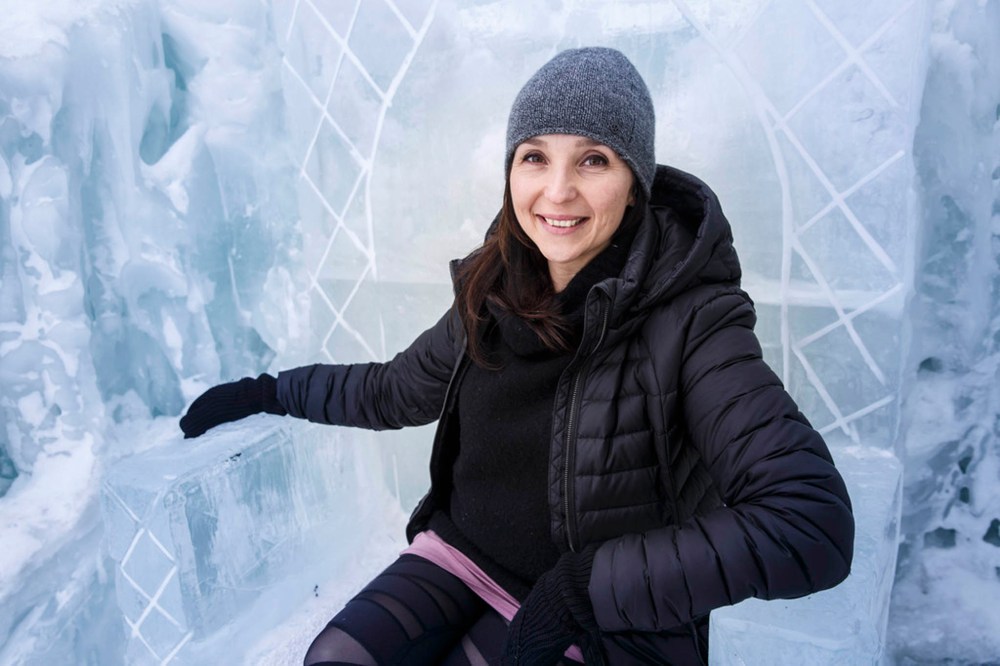
Martha says she remembers when she and her husband were on a video chat with Rick Sterzer, one of their travelling companions, while he was fighting the virus in hospital.
“We got off (the call) and I said, ‘He’s going to die,’” she recalls. “That was terrifying, because at the beginning all we heard was you get this terrible virus and you die.”
•••
Sterzer, 68, a retired Winnipeg firefighter, felt ill before they left the ship.
“We had a balcony, which was a godsend because my wife could sit out there while I was sick in bed,” he says, then fast-forwards to the trip home from Marseille.
“It was the worst flight of my life. Everyone had gloves and masks on and everybody was sick. A number of people died afterwards. It was terrible.”
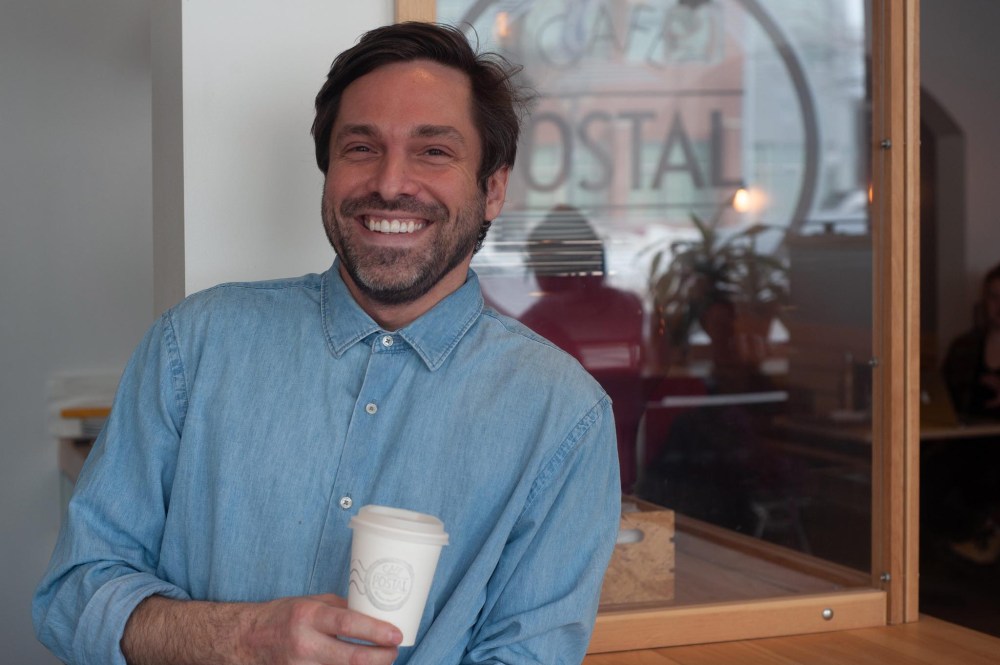
Sterzer’s condition worsened after returning home March 20. When his wife Shannon took him to the hospital a few days later, he had a fever of 42.5 C (108.5 F). Hospital staff said they had never seen a patient with a temperature that high. He spent April and May in the intensive-care unit at St. Boniface Hospital.
Sterzer said a doctor considered putting him into a medically induced coma and on a ventilator at one point.
“The doctor said, ‘I don’t want to put you on it because 50 per cent of the people who go on the ventilator don’t come off,’” he says. “So I instituted a regimen of walking in my room. It was 11 paces from the door to the window. I worked at getting better.”
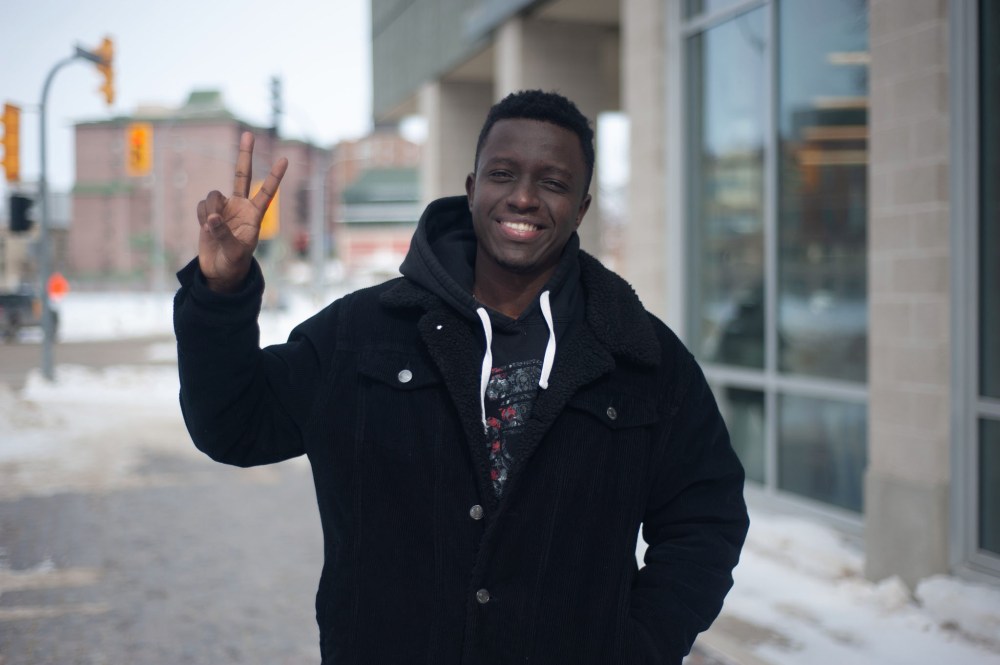
His spirits were raised in a memorable moment that made headlines when his former firefighting colleagues paid a visit to the hospital and zeroed in on his room in a ladder truck, affixing a flag to the outside of the window.
When he was finally well enough to be discharged, he remained on oxygen for several weeks; at one point attaching the apparatus to a cart, which enabled him to play golf.
He’s better after the ordeal, but COVID is not entirely behind him. And he had heart surgery last November; doctors implanted a stent to deal with a blocked artery.
“For two years I was still struggling, not so much with breathing, but with fatigue,” he says. “Now my lung capacity is right up there… I’m doing quite well now. But I’ll never be back to where I was. They tell me I’ll never be 100 per cent. I’m probably 92 per cent now and I’ll never be better than that. I just live with this fact.”
“Now my lung capacity is right up there… I’m doing quite well now. But I’ll never be back to where I was. They tell me I’ll never be 100 per cent.” – Rick Sterzer
Doctors told Sterzer his fitness level had a lot to do with his eventual recovery from his long battle with the virus.
“I was in very good shape,” he says. “I was hitting the gym every second day. They said the only reason I survived was because I was in really good shape.”
And in the if-you-fall-off-the-horse… department, the Sterzers and the Bradburys are planning another cruise a year from now.
“We are booked for March 2023 to replace the one we never really went on,” Sterzer says.
•••
On this day two years ago, Ryan Caligiuri was on a Mexican holiday when he started getting chills.
Caligiuri blamed what was happening to him on his hotel room’s air conditioner and thought nothing of getting on a plane to fly home on his scheduled flight.
It wasn’t the air conditioner.
During the worst of his COVID battle, “I would have to motivate myself to get up to get some soup or a drink,” the 35-year-old says. “It just zaps the energy from you. For about a week, it really took me down, but after (that), I slowly got better.”
Two years later, Caligiuri says he hasn’t had to deal with any of the long-term physical effects others have experienced. But he lost his grandmother to the virus, and other family members got sick.
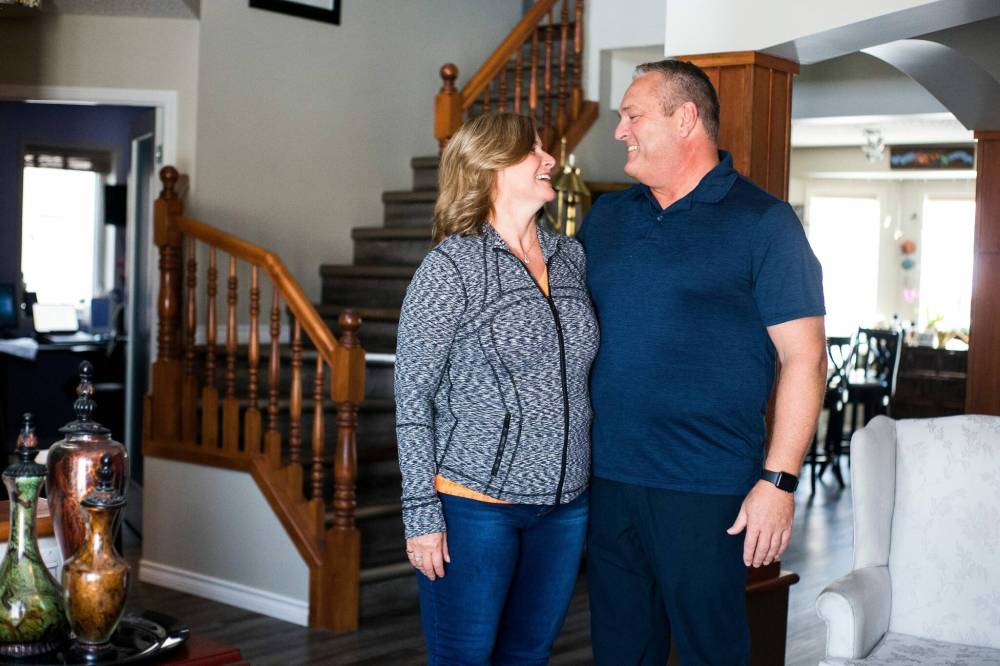
Caligiuri said, like many others in the business community, his leadership development firm suffered as a result of government-imposed public-health restrictions.
“It was tough, but the eternal optimist in me says there’s lots of good out there too,” he says. “While the whole world was on pause, I looked at what I could be doing during the next five years: focus on my health, focus on relationships.”
•••
COVID-19 tore through numerous seniors residences, including Park Manor Personal Care Home, during the second wave in the fall of 2020.
Mary Corbett, who had celebrated her 103rd birthday a few months earlier, was living in the Charleswood facility. She was among dozens of residents who contracted the virus in November and December. It killed more than 10 per cent of Park Manor’s residents.
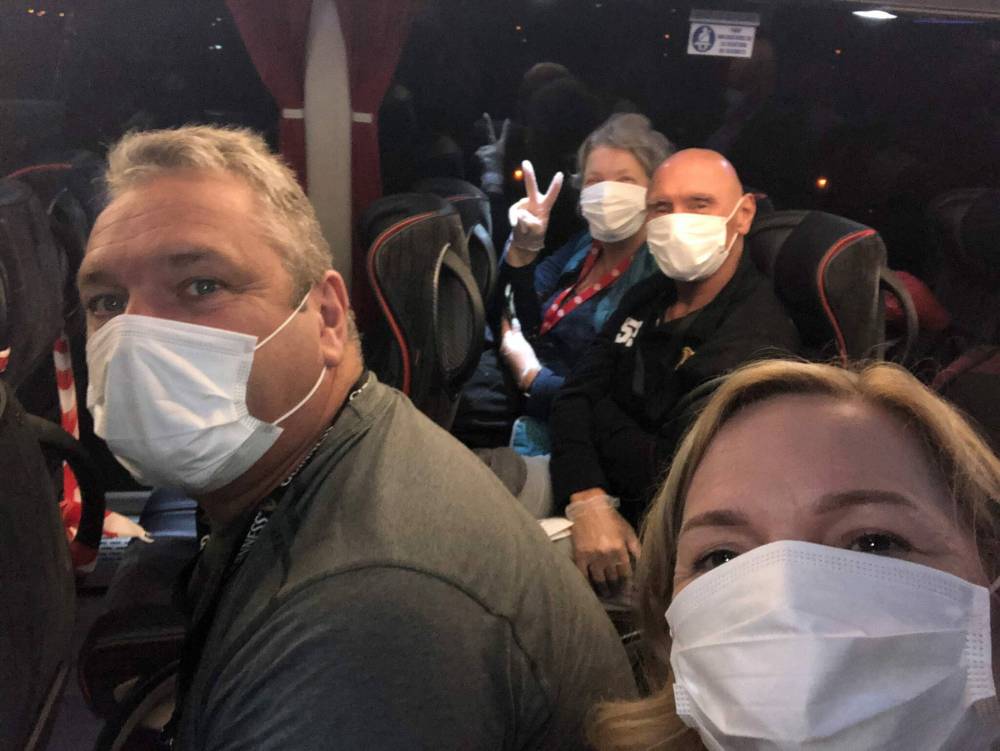
Corbett recovered and is four months away from birthday No. 105.
“She is doing well,” says her daughter Jackie Greig. “Other than she is complaining her glasses need to be adjusted, she is fine. She is just a year older.”
Corbett is originally from Swan River, but moved to Winnipeg about 30 years ago to be closer to three of her four daughters.
Greig says her mother’s main symptom when she was sick “was being sleepy,” along with a mild fever. She was moved into a room with another resident battling the virus but, after 10 days, she was considered no longer contagious and moved back to her room and her daughter could wave to her again through the window.
“She is doing well.” – Daughter Jackie Greig
Greig says both she and her husband contracted the virus in January, more than a year after her mother, and because they had both shots and the booster, “I hardly knew I had it; I had sniffles. My husband had loss of taste and smell, but we’re all fine now.
“I would have just thought I had a cold.”
•••
Margaret Ward had a sore throat, a cough and felt tired on Dec. 13, 2020. She didn’t feel much like eating anything, either.
Many of the now-83 year old’s neighbours at the Convalescent Home of Winnipeg were experiencing similar symptoms as COVID-19 spread through the Fort Rouge facility. Just three of the 84-bed home’s residents managed to somehow stay out of the virus’s path.
Ward lost nine friends during the outbreak.
It wasn’t until Jan. 27, 2021, eight days after residents received their first vaccinations, that dining room opened again.
“It may seem silly, but it was so exciting to see everyone again,” Ward says. “We shook hands with each other, even though we shouldn’t have.
“We wished each other Merry Christmas. We got to look outside our courtyard. Just seeing everyone again and seeing something different was wonderful.”
She hasn’t had to deal with any long-term effects.
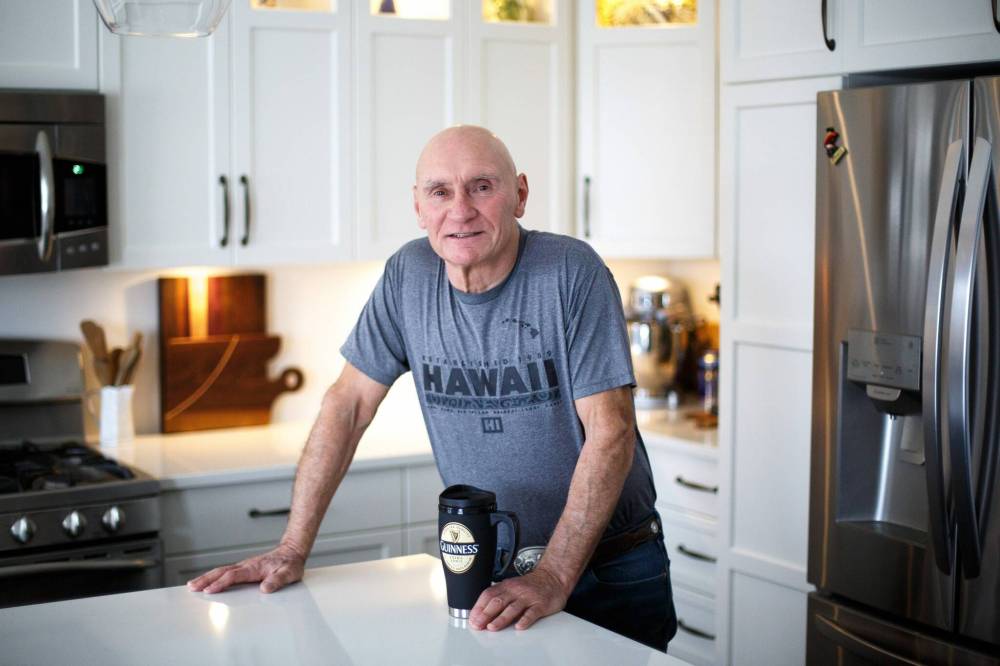
“I think I am about 75 per cent from where I was two years ago, before COVID started,” she says. “I do feel well. I have a lovely room, big window (and) my family is well. I am happy.”
But Ward has concerns about what might follow as the province removes public-health restrictions.
“I have very mixed feelings about our doors reopening more fully now,” she says. “I am anxious about more people coming in and visiting on our floors (and) in our rooms.
“No one wants to go through another outbreak.”
•••
Morden Mayor Brandon Burley got COVID in November 2020, during the second wave of the pandemic, along with his wife and their four children.
“For anyone who says ‘COVID is just a cold’ I can confirm it’s not, in no way whatsoever,” he posted on social media at the time.
“Tests came back positive in our house and I feel like I’m dead or dying 23 hours a day. Take this serious folks!”
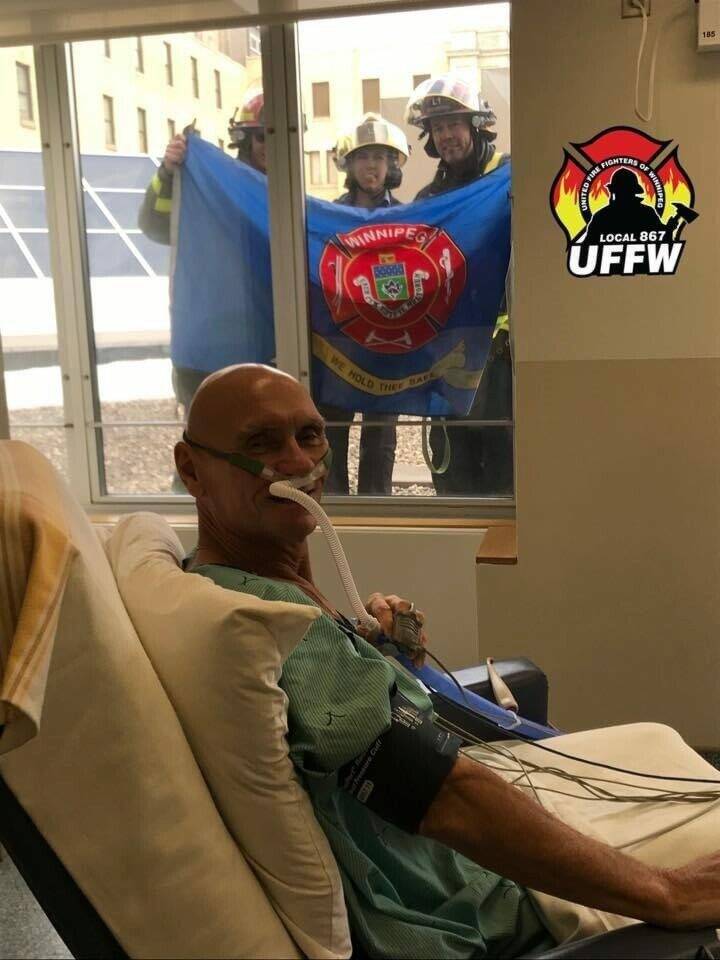
Burley, 40, later said it took more than a month before he could climb a flight of starts without getting winded and stopping to catch his breath. He also couldn’t run a block without having to stop.
It took almost a year to get back a proper sense of smell and taste.
“A lot of food smelled like sewage,” he says. “There are sewage lagoons northwest of the city and the wind can blow the smell in and it was making me hungry — that’s not what you want.
“It’s funny how the brain acclimatizes. At first I would gag and dry heave, but at the end it was just food. You’d think I would have lost weight, but I didn’t.”
Although the kids are fine, and suffer no lingering effects of contracting the virus, Burley says his wife is still dealing with respiratory problems.
”A lot of food smelled like sewage.” – Brandon Burley
Burley was elected as mayor of the town of 8,700 in the fall of 2018. Morden is in the RM of Stanley in Manitoba’s southeast corner, where vaccine uptake has consistently remained the province’s lowest and opposition to public-health orders has remained high.
The area — the town of Winkler is 16 kilometres east of Morden — has dealt with angry protests opposing vaccine and mask mandates, which have left deep divisions among residents.
It helps to have a sense of humour, though. Burley can laugh about some of the things that happened during his year with altered taste and smell.
“A protester yelled at me to ‘eat s—t’ but that was sort of what I was going through,” he says.
kevin.rollason@freepress.mb.ca
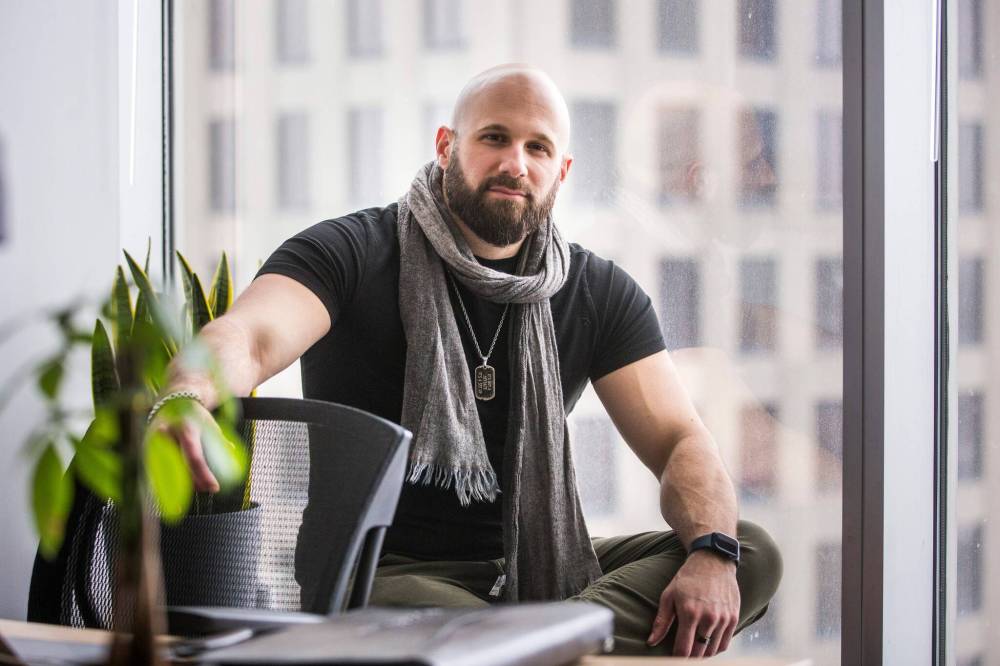
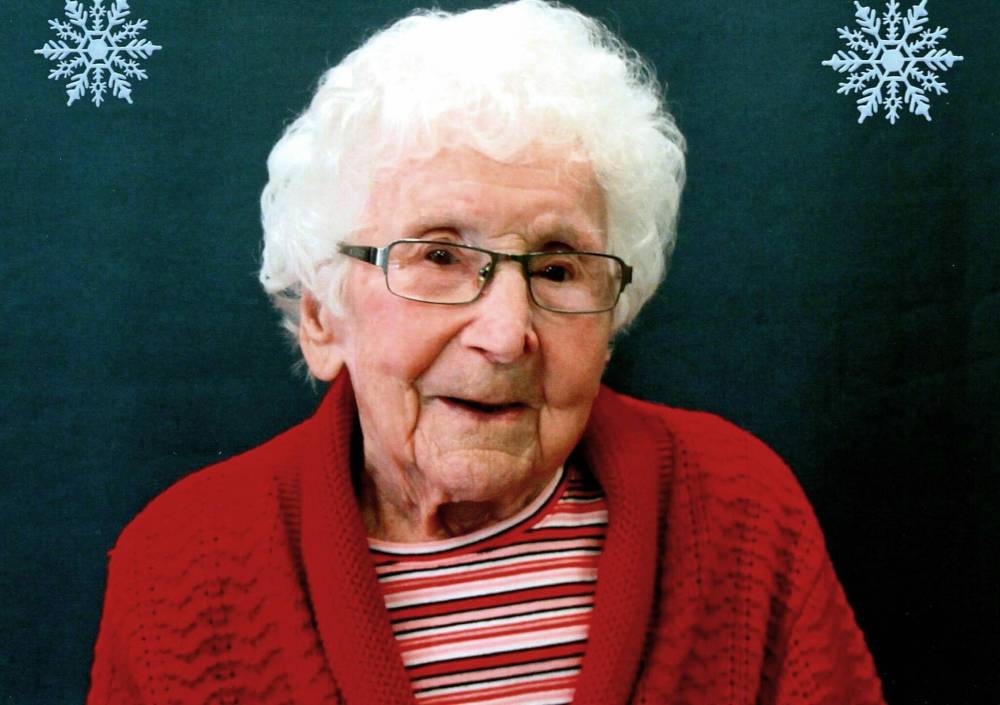
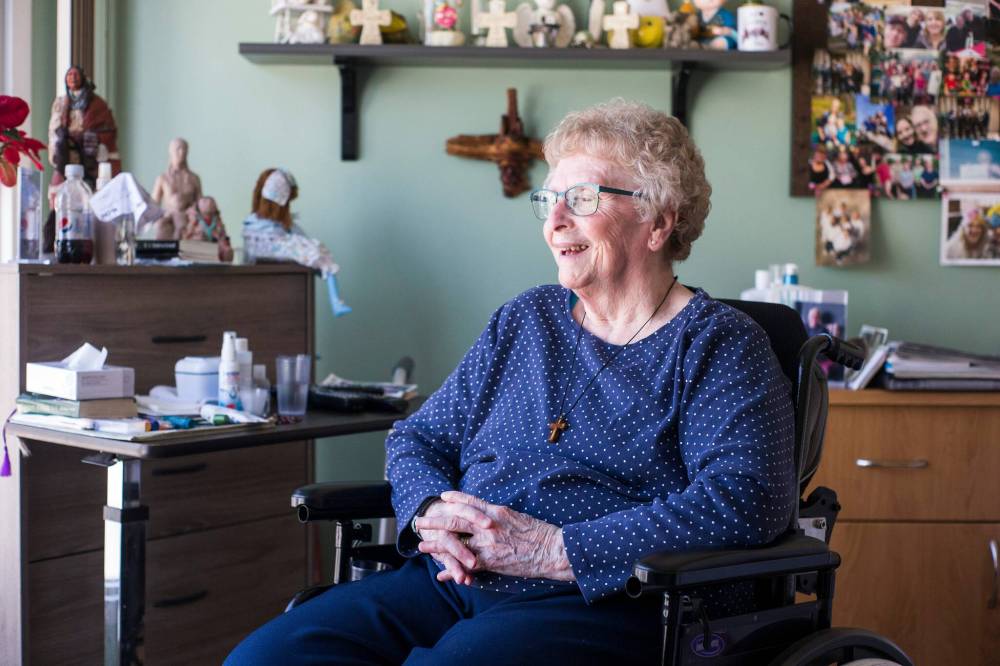
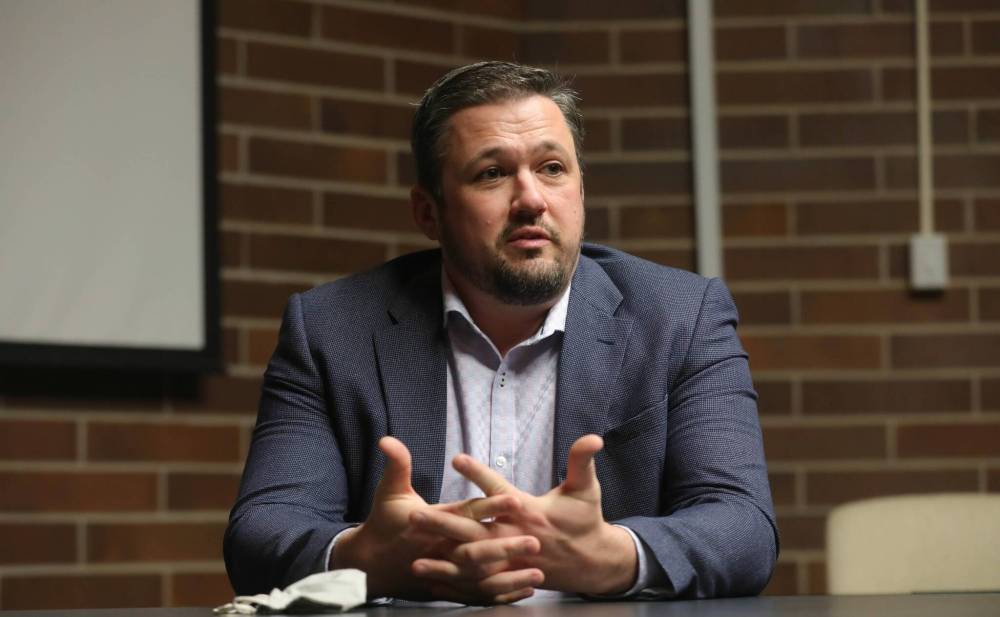
Living, learning, losing: Manitobans speak on the second anniversary of COVID-19’s arrival
It’s been two years since health officials identified the first case of COVID-19 in the province.
Since then, Manitobans have endured illness, sorrow, isolation, shutdowns, restrictions, mandates, fear, anger and, above all, uncertainty.
They’ve also, in some cases, been able to find hope, unexpected happiness and a renewed faith in humanity.
We asked some of them how the pandemic has changed them — for better or worse.
NDP Leader Wab Kinew
“I’ve always appreciated my family, but the pandemic and watching the impact on my mom, as a senior; my wife, who works in health care; my kids, who are going to school, remote learning and sacrificed sports, really forced me to appreciate everything that they sacrificed. And to recognize how much we need to make it up to people like them, health-care folks, seniors and young people. It really put that into perspective and really informs my thoughts on where we need to take the province in the future.”
It’s been two years since health officials identified the first case of COVID-19 in the province.
Since then, Manitobans have endured illness, sorrow, isolation, shutdowns, restrictions, mandates, fear, anger and, above all, uncertainty.
They’ve also, in some cases, been able to find hope, unexpected happiness and a renewed faith in humanity.
We asked some of them how the pandemic has changed them — for better or worse.
NDP Leader Wab Kinew
“I’ve always appreciated my family, but the pandemic and watching the impact on my mom, as a senior; my wife, who works in health care; my kids, who are going to school, remote learning and sacrificed sports, really forced me to appreciate everything that they sacrificed. And to recognize how much we need to make it up to people like them, health-care folks, seniors and young people. It really put that into perspective and really informs my thoughts on where we need to take the province in the future.”
Liberal Leader Dougald Lamont
“On a personal level, it’s been absolutely harrowing. There was a point between November and December where I lost a number of people. I had a friend who took his own life, then (Thompson MLA) Danielle Adams died. A friend of mine died of COVID on Christmas Day. It’s been hard.”
Janice Filmon, lieutenant-governor of Manitoba
“The past two years have given me a deeper appreciation of just how fragile this world is, and how much — as her citizens — we are all interconnected in more ways than we realize.
COVID has given us — often out of necessity — the opportunity to connect with others with whom our paths may have never crossed, and to work together with the common goal to get us to the other side of this pandemic.”
Mayor Brian Bowman
“I would say my appreciation for the term ‘community’ has grown and become more complex. I think the way in which I look at community is different now than it was before. For example, the interconnectedness that we have as Winnipeggers, I haven’t fully appreciated it to the extent that I do now. And I think many Winnipeggers have a greater appreciation for it because we were asked to step up, to be responsible for the protection of other people’s health and most did because they realize we’re connected. So I do look at that term ‘community’ with a greater degree of respect and appreciation for the complexities of what it means to be members of a community.”
Coun. Brian Mayes (St. Vital)
“I think, personally, it’s just meant a lot more time with my family. You get into a groove here (as a city councillor) where you’re going out several nights a week to all these dinners and when that stopped, I think it was positive in a sense that you were able to spend more time with your family. Other times they’re probably tired of having me around or I get tired of always being in the same four walls. I think it kind of renewed my sense of, ‘you shouldn’t let the job be all consuming,’ and I think I had let it become all consuming. So, I think in future I’ll have a better work-life balance, depending on if I’m still here, I suppose. I think professionally, the technological stuff is the obvious (change). I’d never done a Zoom call in my life before this started. Now we do them every day. We have people appearing that way more often than coming down (to city hall) in person. I think what’s gained is more people can participate. I think what’s been lost, especially with the (executive policy committee) meetings, is you don’t have the give and take, you can’t be arguing with somebody, you can’t have a three-way discussion; it’s much more stilted. There’s probably more impact personally than professionally. When it first started I started cranking up my running again. I hadn’t done a marathon since my wife was pregnant with our first son, so that’s been good. I’ve been training again.… To me, it’s kind of helped me rediscover the running part of my life, so that’s been a positive for me.”
Coun. Scott Gillingham (St. James)
“Personally, the pandemic has reinforced the importance of protecting and strengthening relationships. Many families and communities are emerging from the pandemic divided, and we now need to turn our attention to bringing people together, where possible, so that families, communities and our city can reach their potential. I think the pandemic has also reinforced the value of planning and being prepared. The city’s rainy-day fund and our emergency-management office were created in case of extreme circumstances, such as the pandemic. Planning and budgeting ahead have been critical to helping the city make it through COVID-19 thus far.”
Coun. Kevin Klein (Charleswood-Tuxedo-Westwood)
“From a personal standpoint, it’s changed me to pay more attention to family and colleagues, not taking things for granted with family. On a professional level, I think it’s shown me a lot of weaknesses at various government levels and the necessity to have policies and strategies in place and to be more open with residents. And I’m not just saying because that’s kind of my thing. I really believe that because I think we created so much division in our country that I’m really worried about how we repair it now going forward. We really have to work on that. I can say ‘we’ as different levels of government but also elected officials. I think we have to be responsible for that.”
Winnipeg artist Kal Barteski
“The pandemic forced me to sort through my own ideas of what makes a life fulfilling. What did I need? What was my breaking point? While I did not enjoy the uncertainty or fears — I marvelled in finding creative new ways to hold and build connection.”
Comedian Dana Smith
“Since the pandemic, I’ve gotten more comfortable performing comedy into my computer and worse at styling the back of my hair. It’s business in the front, Spencer’s gifts in the back. I’ve become a better cook and worse at portion control. I need far more free time, me time, and I’m OK with that!”
Debbie Patterson, founding artistic director of Sick + Twisted Theatre
“Last night I cried in a grocery store. Because I have an autoimmune condition, my partner has been doing all the shopping for us. But right now, I’m in another city by myself working, so I had to shop for myself. I had been watching the news seeing people from Ukraine talking about being afraid to go out to get groceries, hoping that what they have will be enough to last until it’s safe. I was wandering the aisles of a grocery store with so much wonderful food, feeling so grateful. I hope I never take that for granted again.”
Duncan Mercredi, Winnipeg’s poet laureate
“It hasn’t.”
Loren Remillard, Winnipeg Chamber of Commerce president and CEO
“The past two years have surprisingly forced me to break out of my daily routine and embrace experiences I likely would not have done so before COVID, such as winter hiking. This was driven, in large part, by the other change in me ― a greater awareness of my own mental health and its vulnerabilities.”
Scot McTaggart, owner and operator of Fusion Grill
This anniversary brings back memories of the early years at Fusion Grill. Just like then, it’s been a life-or-death situation for the business. All my fight-or-flight neurons firing away, trying to figure out how to survive. Only this time, it was literal. The weirdest part? I kind of enjoyed it. We came up with all sorts of innovative new ideas. Some of them were nuts, but it was an opportunity to try something new. And besides, I didn’t have anything else to lose, and for damn sure, I wasn’t going to give up.
So how has COVID changed / affected me? It’s made me a more successful restaurant entrepreneur, a broke entrepreneur. But all in all, a better one.
Louis Lévesque-Côté, co-owner of Café Postal
“I’m definitely grumpier than I was two years ago. I learned how you can surprise yourself in realizing how adaptable you are when faced with a new situation.”
Nick Van Settelen, owner of Bodegoes Restaurant
“I’ve learned new limits for patience, thresholds, abilities — I think all for the better. But it’s been a trying two years with a fraction of the workforce that’s normally downtown, where the bulk of our business comes from.”
David Pensato, executive director of the Exchange BIZ
“It has given me a real appreciation for social connections and for the vibrancy that we used to take for granted, in terms of bumping into people on the street and spending time together in different settings. It’s given me a greater appreciation for that.”
Kevin Ruganzu
“I’m new here in Canada. I came here (from Congo) when the pandemic was a little bit worse. But it affects me a lot because I had to wait a semester to study school, so it puts me behind.”
Kyle Becker
“It has really sucked. I barely get to see my mom anymore, my siblings. I can’t see my friends as much. Everyone seems pissed off all the time.”
— Compiled by Free Press staff
fpcity@freepress.mb.ca
A look at lives of four Manitobans lost to COVID-19 over past 12 months
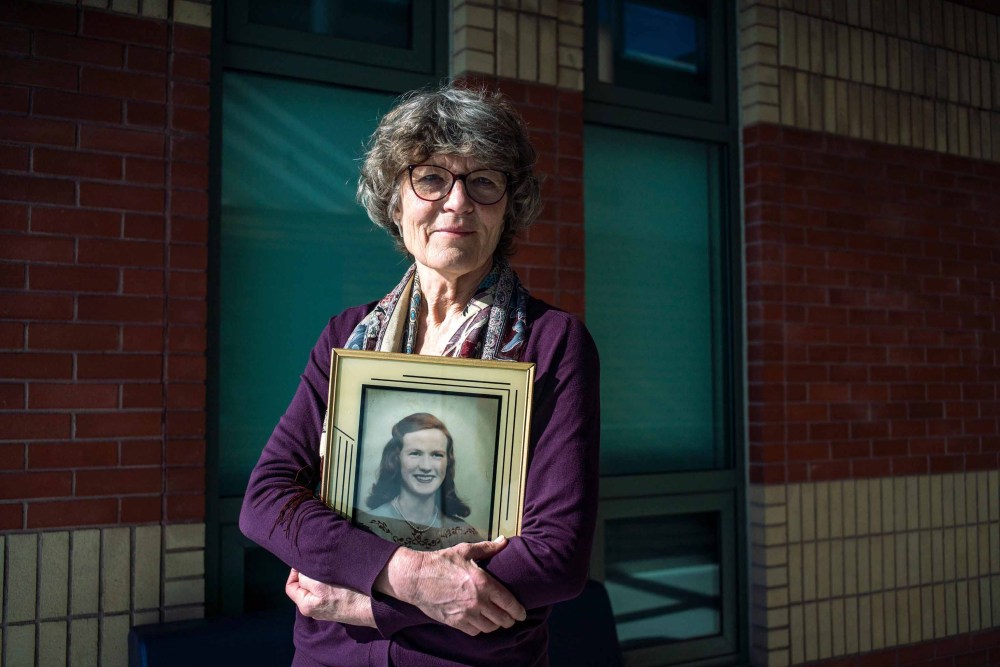
Posted:
They are people, not statistics.

Kevin Rollason is one of the more versatile reporters at the Winnipeg Free Press. Whether it is covering city hall, the law courts, or general reporting, Rollason can be counted on to not only answer the 5 Ws — Who, What, When, Where and Why — but to do it in an interesting and accessible way for readers.
Our newsroom depends on a growing audience of readers to power our journalism. If you are not a paid reader, please consider becoming a subscriber.
Our newsroom depends on its audience of readers to power our journalism. Thank you for your support.
History
Updated on Saturday, March 12, 2022 10:09 AM CST: Adds share image

